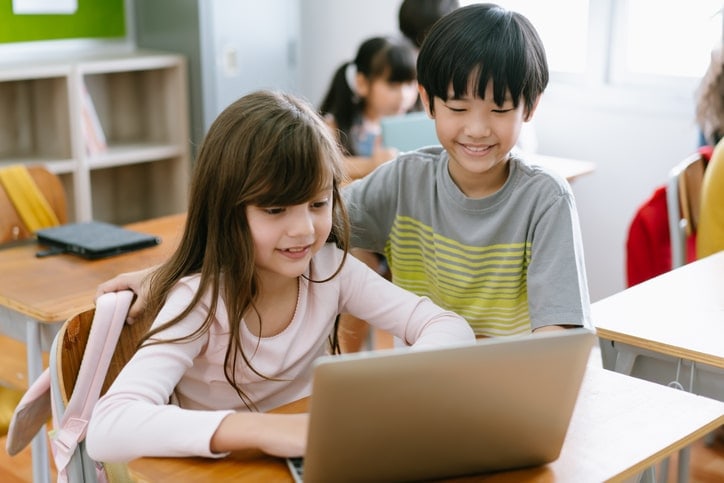Sparking your child’s interest in Arabic can be a fun and enriching adventure! Here are some strategies to get them excited:
Make it Playful: Young children learn best through play. Incorporate Arabic into playtime with games, songs, and activities.
- Use flashcards with pictures and Arabic words. Play memory games or “I spy” using Arabic vocabulary.

- Sing along to catchy Arabic children’s songs. [YouTube] Arabic children’s songs
- Read colorful Arabic storybooks with engaging illustrations.
- Use flashcards with pictures and Arabic words. Play memory games or “I spy” using Arabic vocabulary.
Embrace Technology: There are many educational apps and websites designed to introduce Arabic to children in a fun and interactive way. Explore these resources together and let your child discover the language at their own pace.
Immerse them in the Culture: Surround your child with Arabic culture in a positive way. Watch Arabic cartoons (with subtitles if needed) or children’s shows. Listen to lively Arabic music together. Expose them to the beauty of Arabic calligraphy or traditional art forms.
Connect with Arabic Speakers: If possible, find opportunities for your child to interact with native Arabic speakers. This could be through online language exchange programs, enrolling them in Arabic classes with native teachers, or socializing with Arabic-speaking friends or family members.
Celebrate Progress: Acknowledge and celebrate your child’s efforts, no matter how small. This positive reinforcement will keep them motivated and wanting to learn more.
Lead by Example: Show your own interest in learning Arabic! This can inspire your child and make learning a shared family activity.
Keep it Fun and Positive: Learning a new language should be enjoyable. Focus on creating a positive and stress-free environment where your child feels comfortable exploring and making mistakes.
Remember, patience and consistency are key. By incorporating these strategies and making Arabic a part of your daily routine, you can foster a love for the language in your child that will stay with them for years to come.
“Early Learning as Engraving on the stone”, A say that Arabs believe in. This say makes it clear that what man learns and memorizes at younger ages cannot be forgotten even after the pass of long periods of time. Linguistic potentials appear at early stages, and thus the best age at which a man can acquire Arabic as a new language is early childhood (3-12) years. as a child’s brain is alert in addition to his intuitive ability at memorization as well as his strong desire in imitation.
younger ages cannot be forgotten even after the pass of long periods of time. Linguistic potentials appear at early stages, and thus the best age at which a man can acquire Arabic as a new language is early childhood (3-12) years. as a child’s brain is alert in addition to his intuitive ability at memorization as well as his strong desire in imitation.
To give an example, it is observed that you still can perform well in using the Arabic alphabet, the multiplication table, the Arabic children’s songs, and the Arabic stories which you were taught at young age without any kind of revision or restudying after you are grown-up.
It is clear enough then that if to say that one of the techniques used in teaching Arabic for adults in modern science is to recall a child’s brain that I’m not exaggerating.
Dr. Patricia Cool from Washington University: “We think that some of the magic principles applied by children in this learning situation could be helpful in the programs used for teaching adults.” Patricia Cool, one of an international team, now keeps on trying to turn the experience of teaching children into techniques that deserve to be studied.
Results have proved that:
Addressing perfection in a specific language as Arabic presents an obstacle to acquire another. Cool also goes on explaining that during this period “people work on structuring a base that best copes with learning Arabic or any native language”. It is worth noting that children who are brought up to be bilingual, only by talking to them in both languages, can learn both in the same period that most other children take to learn only one of them. On the contrary, the process of learning Arabic as a second language reaches its best stage by the age of 7.
Generally speaking, the ability to learn arabic as a second language declines notably around the age of puberty. Experiments and researches stress the fact that the brain of a child is in need of personal interaction so as to digest arabic as a new language which means that televisions and compact discs (CDs) cannot be enough on their own. Many researches, experiments and programs have been arranged and conducted so as to stimulate the minds of the adults to imitate the children’s minds concerning the process of the Arabic language acquisition. Cool comments saying: “It was our first and immature try, however, the profits were enormous.”
She nonetheless expresses her opinion about preferring parents exposing their children to Arabic as a second language at a younger age. She also noted that if anyone has the ability to speak Arabic language, so he should make use of that at home, or search for friends for his kid, or someone who can talk in Arabic language and can care for the kid and hence he/she can listen to the Arabic language regularly. She adds: “You will be astonished by the results. It seems that children absorb the new language as pieces of sponge.”
Early Learning as Engraving on the stone
